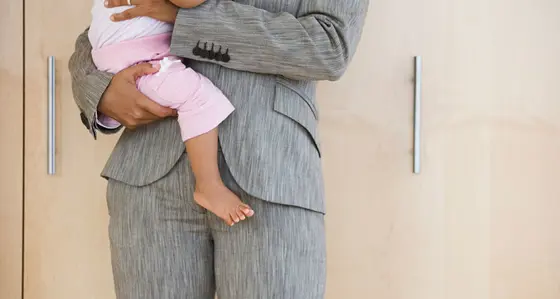
Aspiring to be me, not one of many
5 min read 25 March 2024
The workplace naturally brings out a different part of ourselves, regardless of who we are. But the gap between ‘work self’ and ‘authentic self’, can be much larger for certain groups of people. We need to find out how best to decrease that gap for those where it is notably bigger. And that’s the code we need to crack.
Speaking the lingo
As a black man joining Baringa three years ago, I’ll admit I had a few preconceived ideas about the unwritten rules in the world of work. I figured that the people in the types of careers I wanted to pursue, didn’t look like me, talk like me, or have similar backgrounds or experiences to me. I thought certain demographic groups thrived more than others in the workplace. And by displaying these associated ‘polished’ characteristics – whether it’s true or not – gives the impression that you can do your job better. So, somewhat subconsciously, I did what I could to assimilate.
Baringa has always been a very welcoming place, but even in the short time I’ve been here, it’s developed a much more diverse workforce. At the beginning, among less diversity, I felt the need to assimilate into the pre-existing culture, to try and fit in more. I brought a certain type of myself to work, even slipping into speaking a ‘work lingo’ that I didn’t use at home!
Celebrating the value of difference
But there are many instances where my authentic self did, and still does, come out – among my peers, with those who have similar experiences to me, or where people know me better. And over time, with experience and increased confidence in my abilities, the needle on my personal ‘authenticity gap’ has moved more towards ‘who I am’.
It helps enormously that Baringa has a culture of listening. It enables me to provide the context of who I am and where I’ve come from. This is particularly down to the wide breadth of diversity networks that have evolved within the organisation. Where, by individuals having a space to share their experiences – both negative and those to be celebrated – the value of difference has become much more mainstream within Baringa.
My involvement with the Black at Baringa network has been a personal turning point. It provides me with a safe space where I can be with those of shared backgrounds. It also gives me the opportunity to show other people who look like me that you don't need to act in a certain way to progress.
One of the main goals of the Black at Baringa network is to recruit an underrepresented black population into the Baringa workforce. Initiatives like Black at Baringa lunches and Black History Month events help to make our work environment more inclusive and in turn more welcoming. Dismantling the out-dated rules of how we should be at work that no longer benefit us. Meaning, hopefully, that people will want to stay at Baringa once they’re here.
Continuing to listen to move forward
Despite the incredible work that Baringa has done to encourage inclusion, it’s so important that we keep creating these spaces to listen. Because things continually change, and what certain groups need now might not be what they needed yesterday or what they need tomorrow. In fact, what I need today might be completely different to what another black person needs today. There’s no room for complacency.
If we keep asking the question of where we are in terms of diversity and recognising where we’re not and what we can do about it, then we’ll continue on our journey to move forward and rewrite the Baringa code and lessen the authenticity gap for everyone. After all, we shouldn’t feel like we have to be a certain person at work, or in life. It’s boring to be one of many.
More from this series

Supporting different versions of our authentic selves
Parris Lougheed, Executive Assistant, describes her journey as a Black woman discovering the code and finding support throughout Baringa. She believes that rewriting the code must be authentic and allow us to bring our everchanging true selves to work. Parris recently became a parent, and this means discovering a new code, and a new version of her working self.
Read more
Dancing with the code
Sam Bennett, Knowledge Management Advisor, shares exactly what it means to recognise and work within the code. After suffering from imposter syndrome before even starting at Baringa, Sam describes how they were able to become more them at work, how Baringa supported them, and how change now needs to come from the wider industry.
Read more
Wonder Woman doesn’t exist…
Olena Isaieva is happy to admit she is no Wonder Woman. It’s not possible to do everything by yourself, and you shouldn’t try. Our Director in Commodities and Energy Trading in Switzerland credits a strong support system with the success and fulfilment she enjoys, both in her personal life and career. Read on to find out how she is using her own experiences as a woman in male-dominated environments, to support and encourage others at Baringa.
Read more
Freeing the chameleon
From the covert world of law enforcement and intelligence to time in consulting firms big and small, James Hampshire has done his fair share of shape-shifting to fit in. However, following a revelatory diagnosis, James explains how it was time to let go of the mask and reveal his true self.
Read moreRead our Personal Journeys blog

Diversity and inclusion: personal journeys
A series of reflective pieces where brilliant people from within Baringa will share their journeys as individuals or members of our company and community.
Read more


Why I am talking to white people about race
Introducing Jennifer Cook, an expert in organisational and operational transformation and a leader in Baringa’s Ethnic Diversity Network
Read moreIs digital and AI delivering what your business needs?
Digital and AI can solve your toughest challenges and elevate your business performance. But success isn’t always straightforward. Where can you unlock opportunity? And what does it take to set the foundation for lasting success?